UPPER ENCHANTED TOWNSHIP — In their 13 years of owning a camp off the aptly named No Road, Norman and Lisa Lapointe never had significant problems getting to it — until last week.
“The devastat is unbelievable,” said Lisa Lapointe, 51, as the couple and several of their neighbors surveyed the damage to the road Saturday, about five days after severe flash flooding hit the isolated area. “I just can’t imagine how much rain fell to do this.”
The Lapointes, who live in Vassalboro, are one of about 30 property owners on No Road who were cut off by the flooding and a road washout Tuesday. Five days after the flooding, massive piles of rocks and boulders blocked the base of the road, and water was still flowing through ravines that had cut through the gravel.
For now the Lapointes and others are accessing their property via a 45-minute detour over other private roads and ATV trails, and they have little hope that their road association will get outside funding to help pay for the damage.
State and local officials, including the heads of area road associations, last week estimated damage on the network of roads to cost hundreds of thousands of dollars and said they were exploring options to help pay for repairs — but by the end of the week nothing had turned up. Somerset county commissioners are scheduled to discuss the topic Wednesday, Sen. Rod Whittemore, R-Skowhegan, said Sunday.
“Nobody really has any hope at this point,” said Ernie Shufelt, the president of the No Road Owners Road Association. Shufelt said he estimates the damage to No Road is about $100,000 worth and if it is to be paid for by the road owners would cost about $3,300 each.
The situation is an extreme example of the problems that private road owners face in Maine, said Betsy Connor Bowen, the founder and webmaster of the Maine Alliance for Road Associations, a statewide resource for Maine road associations formed under the state’s Private Ways statute. The organization does not track the number of private roads in the state.
Connor Bowen said she had never heard of a situation involving such extensive damage in Maine and estimated that repairs would likely exceed the road associations’ authority to raise money. Under state statute, road associations are only authorized to charge members up to one percent of their municipal property valuation in any calendar year.
“You could call the situation in Somerset County a perfect storm, except it’s anything but perfect,” Connor Bowen said in an email. “It’s an extreme example of how bad things can get. What to do in situations like this is an unsolved problem that is only going to get worse.”
There are few other provisions that help private road owners in the case of natural disasters. County officials said last week that it would be unlikely they could use county funds to repair private roads, and the director of Maine Emergency Management Agency said they also could not assist with repairs.
“It’s absolutely going to have an impact,” Shufelt said. “Most of the lot owners here are working level Maine people, not high end out of state land owners.”
The private ways statute does allow municipalities to contribute funds toward private road repairs for the purpose of protecting or restoring a great pond. Nearby Parlin Pond, which meets the state’s criteria for a great pond, collects runoff from the affected area according to some residents, but several also expressed skepticism Sunday as to whether the proximity of the pond could play into a plan for repairing area roads.
On Sunday, five days after the flash flooding, the water on Parlin Pond remained cloudy and brown as visitors fished and boated on the water.
“Normally the water is clear,” said Jonah Bloom, property manager at Lake Parlin Lodge and Cabins, a restaurant and hotel in Parlin Pond Township. “Right now it’s just very murky, and I don’t know how long it’s going to take to get back to normal.”
Joe Kruse, the owner of the lodge and cabins, also said that while the water has been discolored for nearly a week, “I think it’s probably harmless and is just going to take time to settle.”
The state’s requirements under the private ways statute include that the body of water be listed by the Department of Environmental Protection as a body of water “most at risk;” be listed as having impaired water quality in a state report to the U.S. Environmental Protection Agency; or be identified as having threats to water quality in a DEP watershed survey. No representative from the department could be reached for comment Sunday. The pond does not appear in the state’s most recent report to the EPA as being impaired, according to the department website.
Also, because the pond and affected roads are located within unorganized territory, it is unclear whether the county could provide assistance rather than a municipality.
Whittemore, who has been working on the issue, said Sunday that the damage to the roads will likely be in the hundreds of thousands and that he was not sure what the impact of the storm has been on Parlin Pond. The Parlin Pond Bridge, which is part of U.S. Route 201, was washed out during the flash flooding, forcing a 100-mile detour. The bridge re-opened Thursday morning.
“That water was quite dirty when I was up there, which was to be expected,” Whittemore said, though he said he didn’t think there were any contaminants in any of the runoff into the pond that would cause concern.
“It would have to be something other than silt,” he said. “Silt will just settle to the bottom in due time. If you had diesel fuel or something like that, that’s something that would usually be what would cause an issue. This appears to just be Mother Nature doing her thing.”
Shufelt, the head of the road association on No Road, said he doubted that run-off from that road would affect Parlin Pond.
“I wouldn’t dare say,” he said. “You would have to ask somebody who knows more.”
But Bowen, of the road association alliance, said that camp roads providing access to waterfront properties are usually private roads and are among major causes of water quality declines if they aren’t repaired.
In fact, gravel roads are a significant source of pollution in many of Maine’s lakes and ponds, often contributing anywhere between 15 to 30 percent of phosphorus inputs, according to Peter Kallin, president of the Maine Lakes Society. In the case of a highly erosive event such as occurred in Somerset County, phosphorus levels can rise even higher, Kallin said. High phosphorus levels contribute to algae growth, lack of dissolved oxygen in water and can disrupt plant and animal life.
When gravel is swept away as run-off it also contains other sediment, such as sand, clay and loam, all of which contain phosphorus and that can fill in spawning and feeding grounds for fish. Parlin Pond, according to Kallin is a high quality trout fishery that could be significantly changed by a large influx of sediment.
“The state has an obligation to maintain water quality, and if tax dollars are spent doing that it would be justified in my opinion,” Kallin said.
No Road is one of several in a network of private roads in the unorganized territory of Somerset County that sustained damage when more than seven inches of rain fell in a five-hour period Tuesday. Parlin Pond is also one of several bodies of water in the area, which also includes Grace Pond and Spencer Lake. It was unclear Sunday whether either of those bodies had been affected by the storm.
Repairs have already started on Spencer Road, a gravel thoroughfare that starts at Route 201 about between Jackman and The Forks and runs west to Franklin County. It’s largely owned by timber company Weyerhaeuser Co.
On Grace Pond Road, a side road with more than a dozen camps, damage was minimal overall, but another side road, Old Spencer Road, saw some of the worst damage and on Saturday was barely passable except for on foot because of several large craters and debris. Several vehicles that tried to go down the road turned around after about half a mile.
Joyce and Jim Dionne, who live at their camp on Grace Pond in the summer, were home during the storm Tuesday night and described water falling in sheets it was coming down so fast.
“We lucked out,” said Joyce Dionne, noting that the road to their camp and their driveway received little damage.
James York, of Bath, who also owns a camp near Grace Pond drove to his property on Saturday to survey the damage. “This was one of if not the worst storm we’ve seen,” said York, 55, who has had a camp on Grace Pond since 1992. He added that while his camp was intact and the road to it was only slightly damaged, others who live off of Spencer Road were not as lucky.
“We’ve had minor washouts before but nothing like this,” said Norman Lapointe, the Vassalboro camp owner on No Road.
All of the property owners on No Road have been able to find a way in and out of their camps and property, several of them relying on ATV trails for access. But even the ATV trails took a hit in the storm, many people said.
“It’s going to impact this region dramatically,” said Amy Jacob, whose family owns a camp on Grace Pond but who was surveying the damage on No Road Saturday. “So many of the trails are damaged, which means people aren’t going to be riding on them and they aren’t going to be spending money on food or lodging. It will have an impact on tourism.”
At the Lake Parlin Lodge and Cabins, Kruse, who is also president of the Coburn Summit Riders snowmobile club, said nearby snowmobile trails were also extensively damaged and he wasn’t sure what the cost of repairs would be.
Kruse said he wasn’t sure how he thought road repairs should be paid for, but said many of the roads are used by hunters, ATV riders, hikers and other visitors to the area although they are private.
The roads are also used by law enforcement, emergency services and the Maine Forest Service. By Friday, the Maine Emergency Management Agency said that they would be unable to contribute because the roads are private and would not qualify for federal funding. The office of Gov. Paul LePage also was exploring the use of different state agencies, but a spokeswoman said Friday that it could be difficult because the roads are private.
“Access is vital to this area’s economy,” Kruse said. “This is going to be one of those storms that we’re going to look back on for a long time.”
Rachel Ohm — 612-2368
Twitter: @rachel_ohm
Send questions/comments to the editors.


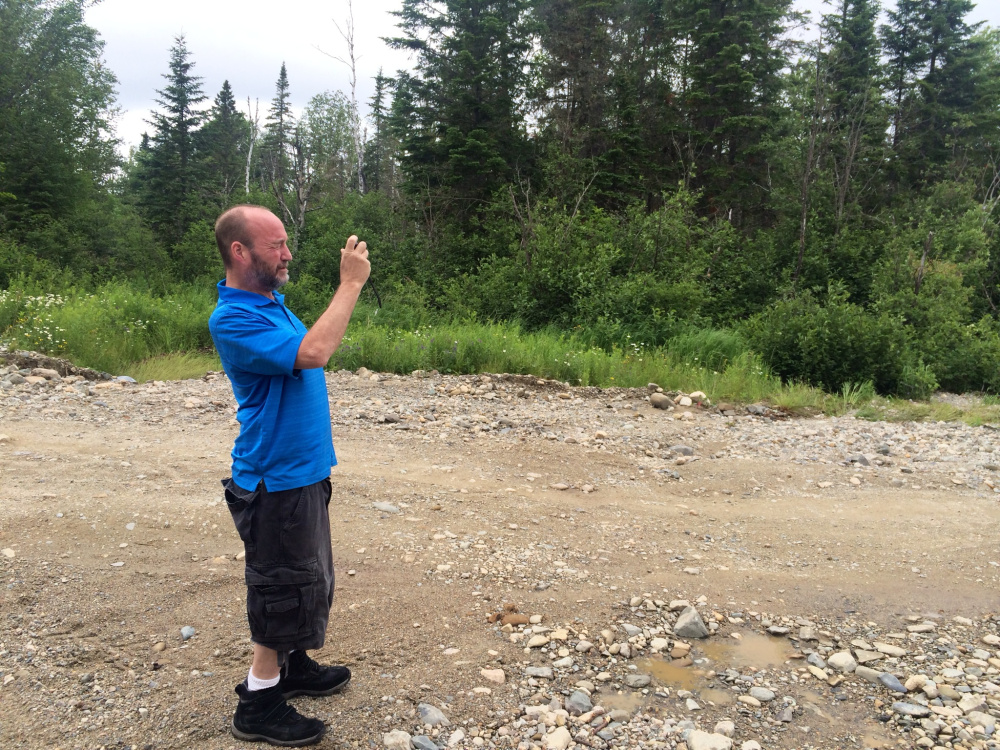
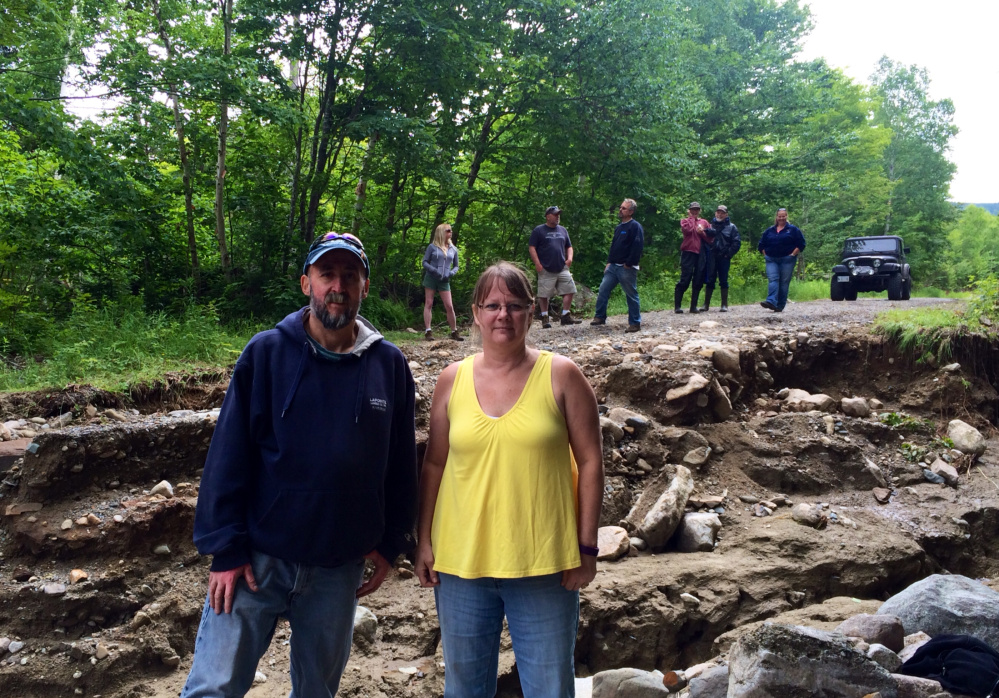
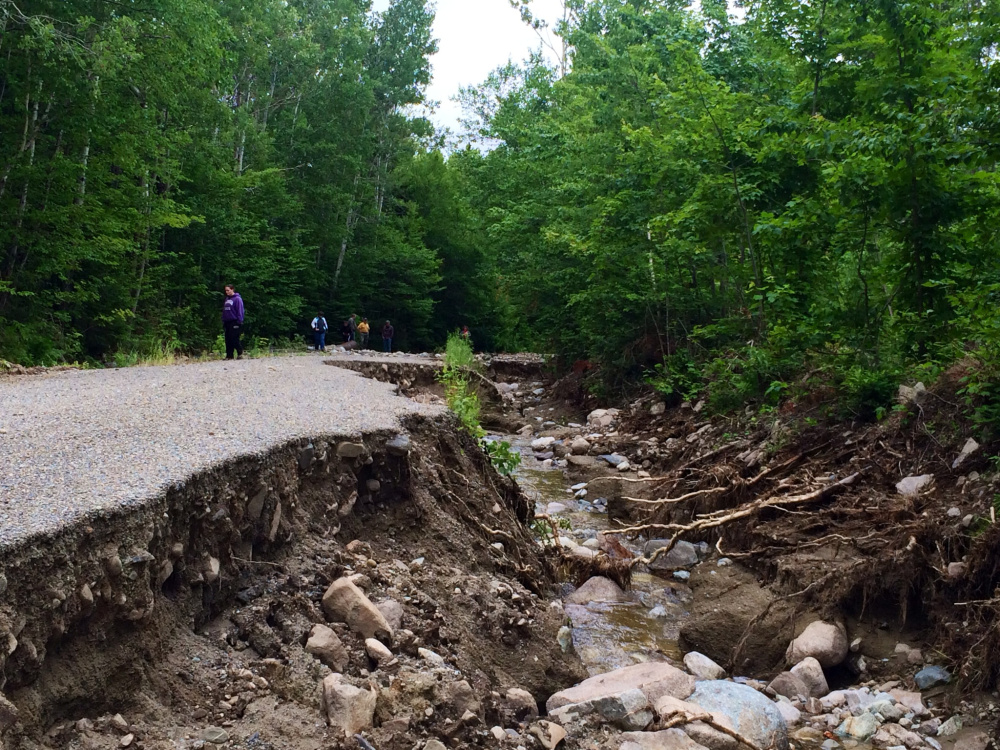
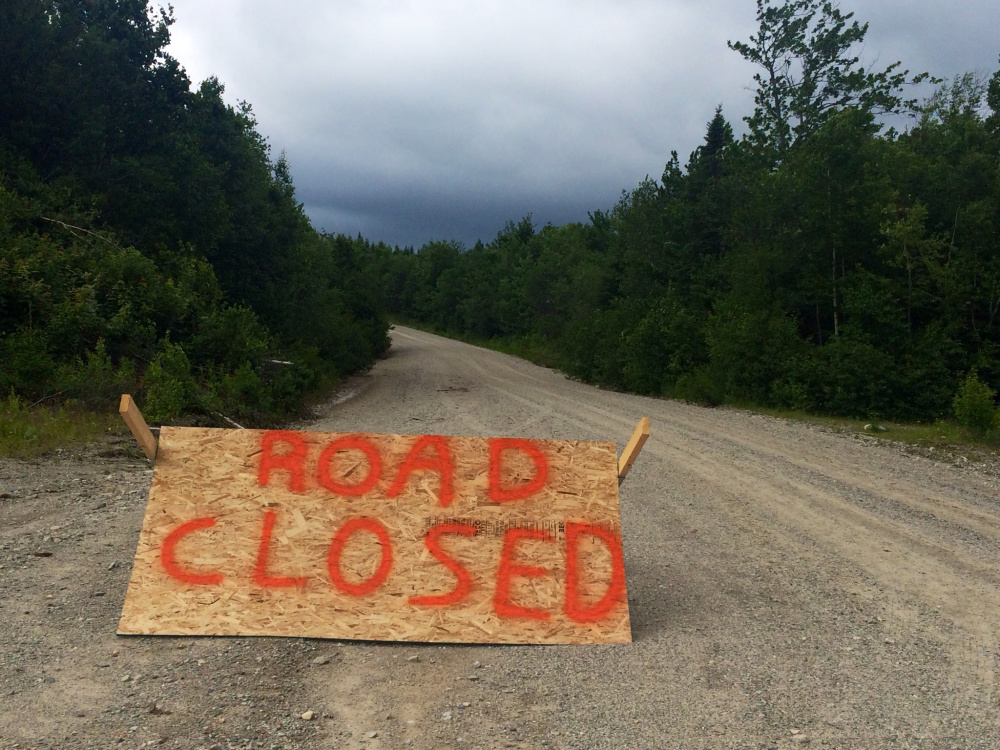
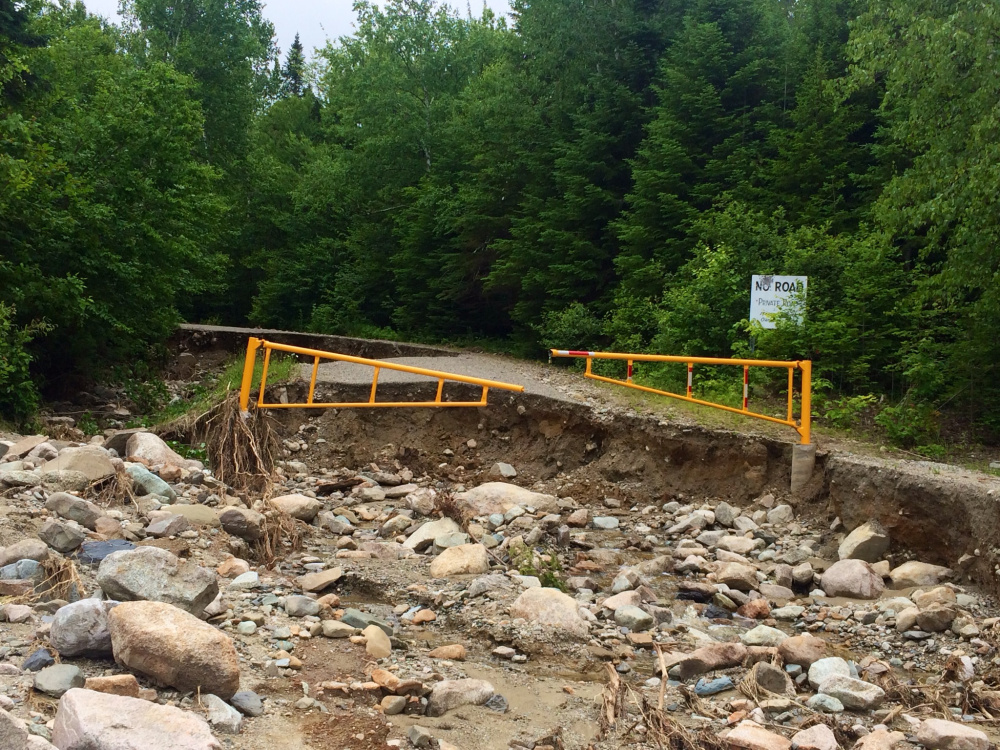
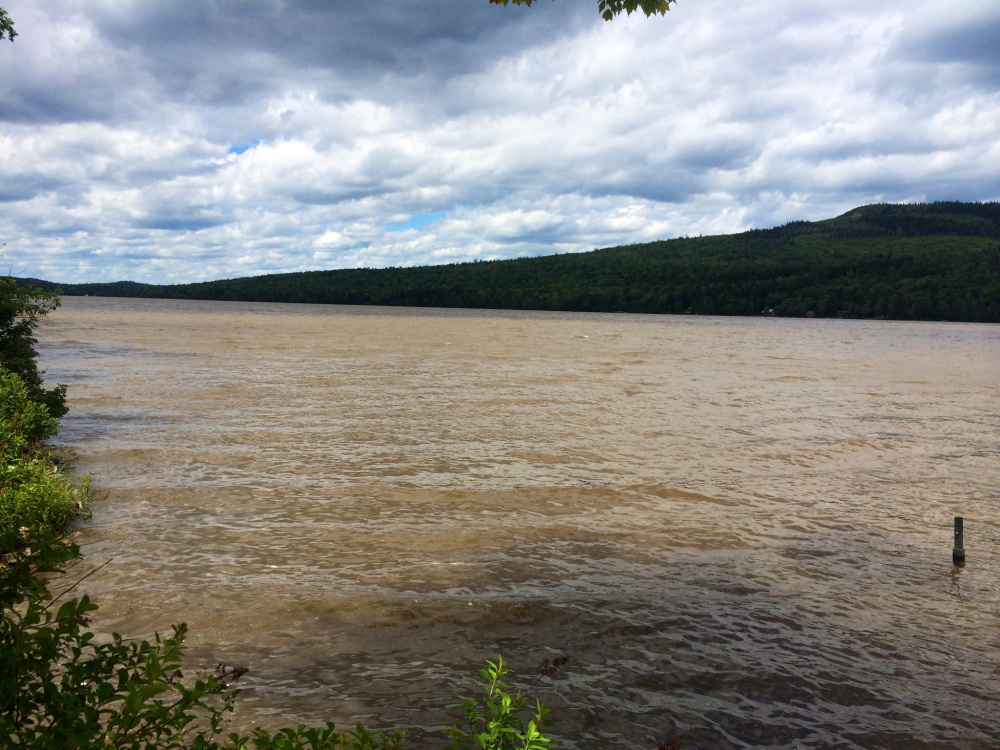

Success. Please wait for the page to reload. If the page does not reload within 5 seconds, please refresh the page.
Enter your email and password to access comments.
Hi, to comment on stories you must . This profile is in addition to your subscription and website login.
Already have a commenting profile? .
Invalid username/password.
Please check your email to confirm and complete your registration.
Only subscribers are eligible to post comments. Please subscribe or login first for digital access. Here’s why.
Use the form below to reset your password. When you've submitted your account email, we will send an email with a reset code.